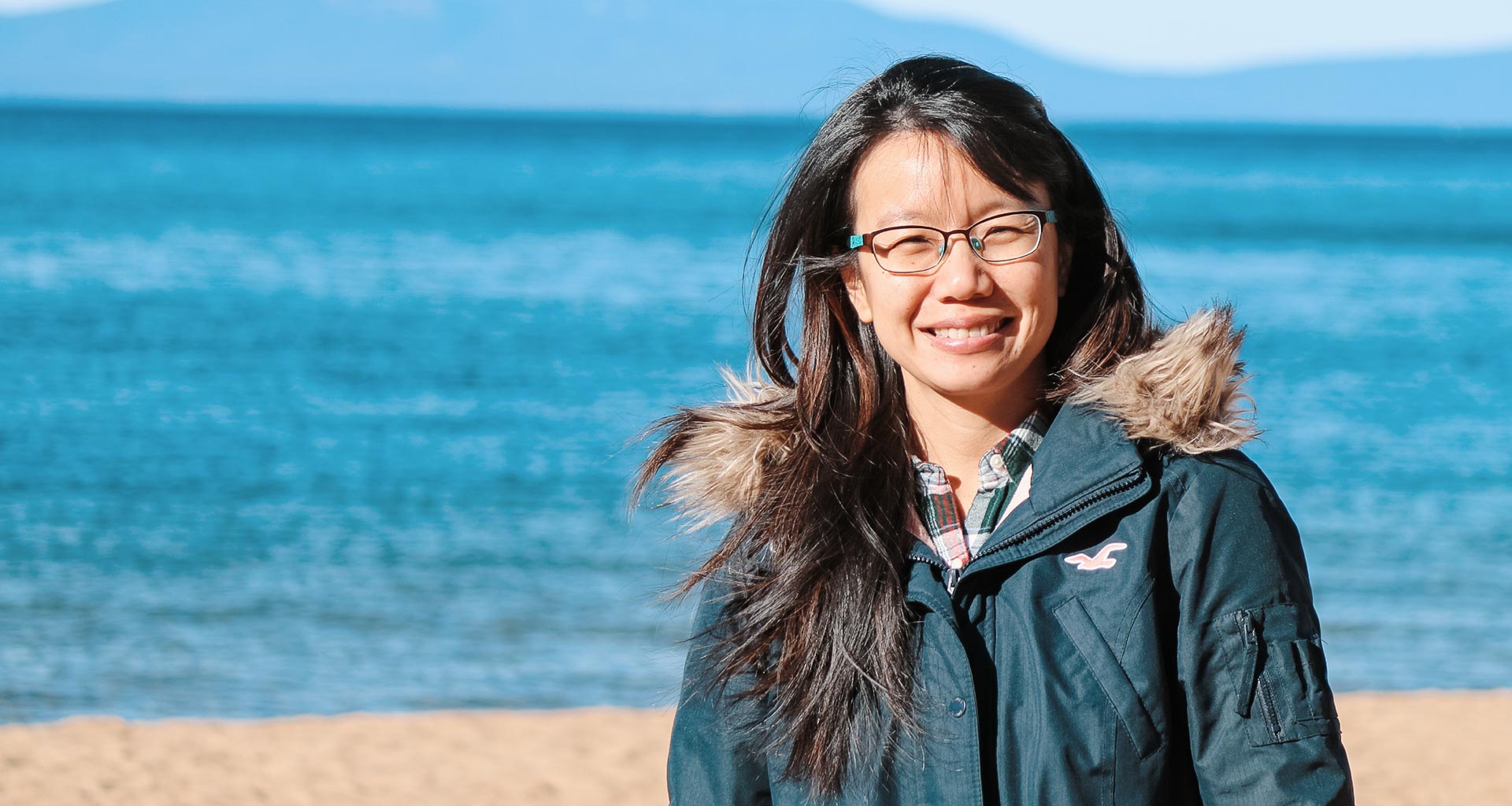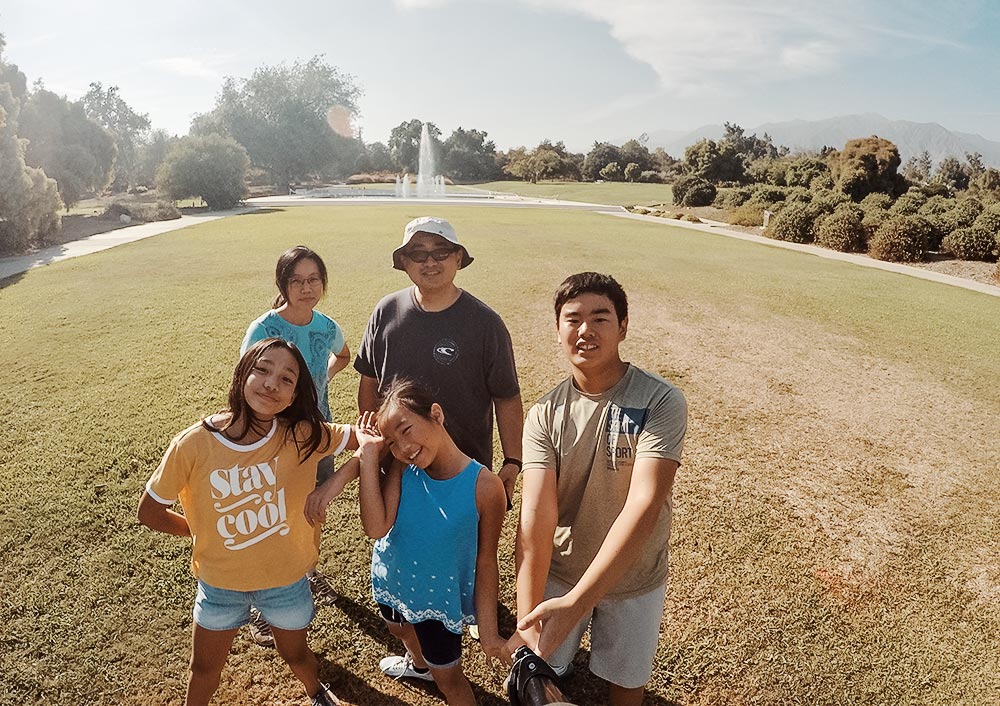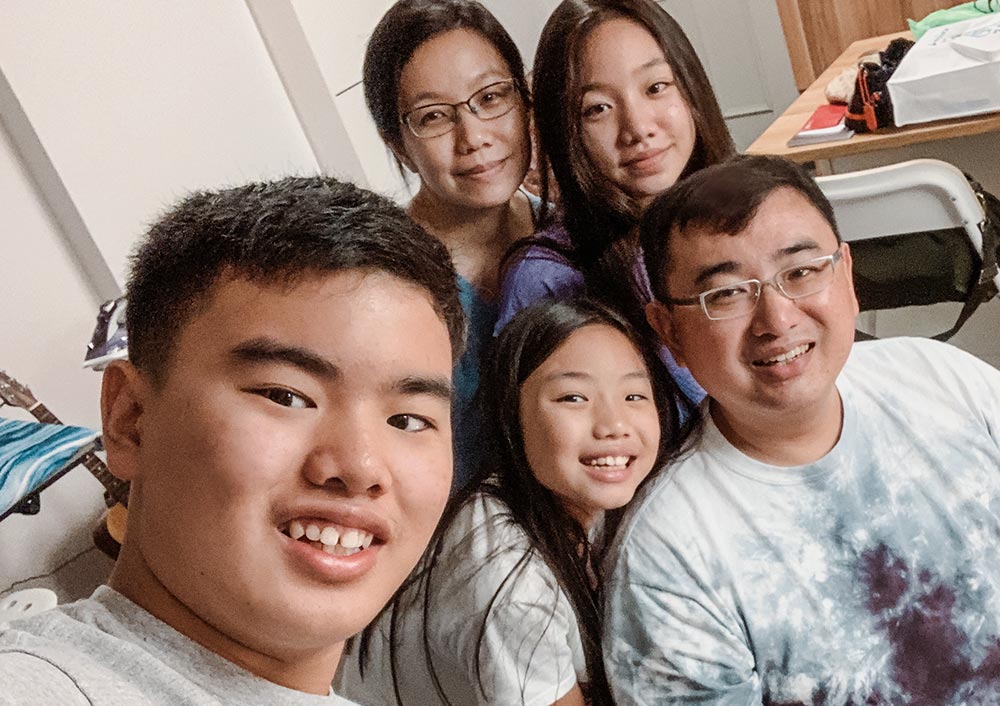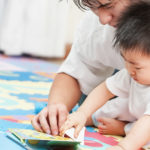
Chao-Koh Ai Jin knows all about mum guilt.
When her first child, Elijah, now 16, was born, she was working part-time as a counsellor in a church. Even though she could go home early, she felt guilty for every hour she didn’t spend with her kids. At the same time, she knew that she would be emotionally drained if she were to stay at home with them all day and not go out to work.
As the wife of a pastor—her husband Bernard—she also had many commitments, from worship and small group to youth and children ministries, many of which took up precious evenings and weekends.
Then, when she started going for courses in counselling, she had to try to find a way to balance time between her work, studies, husband, kids—and taking care of the house. This became even more difficult when she and her husband Bernard had two more kids, Emma and Ezrela, now 15 and 11. The guilt just kept building up.
“It was a constant struggle,” she says. “I could only be in one place at a time.”
What didn’t help, she adds, is that she hadn’t quite worked out what her priorities in life were. “Was it working for money, working for my own achievement, or spending time with my kids? As a young mother, all these things were in a state of flux.”
A New Perspective on Balancing Work and Family
For some 10 years, Ai Jin struggled to play catch-up in the race to be a good worker, wife, and mother.
But it all changed when the family went to the United States, when Bernard went there for further studies. While Ai Jin didn’t have to work there, she found out that she no longer had the luxury of having a domestic helper to rely on, which she did in Singapore.
Ai Jin found that a lot of the balancing act had to do with tempering her own expectations of herself as a mother.
“I saw how my friends could work and manage the house without a helper, and learnt to be more efficient at managing the household,” she says. It also helped that her kids were now older and spent more time in school.
Ai Jin found that a lot of the balancing act had to do with tempering her own expectations of herself as a mother. For example, she stopped worrying about things like getting the freshest ingredients for meals, keeping the house spotless, or making sure everything was perfect. She found efficient ways of preparing meals—like throwing beef and carrots into the pot for a quick but delicious and nutritious stew—and cleaning the house.
Where possible, she also tried to time her commitments and appointments so that she would be at home when her kids came home from school. And she sought to be intentional about spending time to listen to them share about their day.
But one of the most helpful perspectives was learning to “parent out of her faith”, rather than trying to be the perfect mum.

Ai Jin, her husband Bernard, and their children Emma, 14, Ezrela, 11, and Elijah, 16.
Parenting Out of Her Own Faith
Instead of focusing solely on what she has to do as a mother, Ai Jin has found that it is more important to first establish herself as a follower of Christ. This means centring herself on abiding in God—seeking holiness, walking in a godly way, and nurturing His values. Remaining in God, she adds, has become her source of strength for her daily activities and fruitful living.
What guides her in this is John 15:5–8: “I am the vine; you are the branches. If you remain in me and I in you, you will bear much fruit; apart from me you can do nothing . . . This is to my Father’s glory, that you bear much fruit, showing yourselves to be my disciples.”
These verses have shown Ai Jin that parenting out of an abiding relationship with God is the only way to be fruitful as a parent.
She is also inspired by verses like Matthew 6:33—“Seek first the kingdom of God and his righteousness, and all these things will be added to you”—which she sees as applying to all of Christian living, including parenting.
“I have to parent out of my own faith, out of who I am,” she says. “My walk with God becomes the primary thing. When I trust God more, I will feel stress less. When I seek God’s wisdom more, I will be more discerning in the decisions I make. When I love God more, I will overflow more with love for my family.”
Keeping her eyes on her walk with God also helps Ai Jin do parenting from a Christian worldview. She says: “The world values success, status, money, and power, but these are not God’s values. God values simplicity, contentment, peace, and life. When I make those choices for myself, it will flow into my parenting. If I walk with God closely, then I will be more led by Him, and be more discerning in how to parent my kids.”
“My walk with God becomes the primary thing. When I trust God more, I will feel stress less. When I seek God’s wisdom more, I will be more discerning in the decisions I make. When I love God more, I will overflow more with love for my family.”
Parenting from this perspective has helped Ai Jin focus on the things that really matter—that is, the things that she believes God cares about. It has guided her to model her pursuit of God’s holiness for her children, show them that the family always looks to God for His provision of their future, and temper her expectations of herself—and of her kids.
As she notes, 1 Timothy 6:6–9 stresses the importance of contentment: “Godliness with contentment is great gain. For we brought nothing into the world, and we can take nothing out of it. But if we have food and clothing, we will be content with that. Those who want to get rich fall into temptation and a trap and into many foolish and harmful desires that plunge people into ruin and destruction.”
Focusing on the Person, Not on the Task
In tackling the mum guilt and parenting stress she has faced, Ai Jin has also learnt to focus more on enjoying being with her children and just hanging out, rather than on how much time she has with them or what she should do to spend time with them. This approach allows her to juggle her present job as a full-time counsellor at Barker Road Methodist Church as well as her part-time studies doing a master’s theology degree in recovery ministry.
“Parenting is beyond physical time.It is about how I connect and bond with my kids. It is about how I show love.”
So, instead of letting herself feel guilty for not spending more time with her kids, Ai Jin tries to make a special effort to find out about how their day went, acknowledge their fears and concerns, encourage them in their studies and hobbies, and show an interest in what they’re doing.
“Parenting is beyond physical time.It is about how I connect and bond with my kids. It is about how I show love.”
“I try not to be bounded by time,” she says. “Rather than trying to attend to them throughout the day, I try to be intentional in giving them my attention when they are ready to talk and share. I try to optimise these moment-to-moment conversations rather than worry about how to find time for these conversations.”
Listening well, she adds, is an act of love that shows children that they are more important than the task at hand. In this, Ai Jin takes her cue from 1 John 4:7: “Let us love one another, for love comes from God. Everyone who loves has been born of God and knows God.”

Ai Jin and family.
Being Happy, Healthy, and Holy
Once, when Ai Jin was struggling with how to be a godly parent and how to balance her time, her husband Bernard pointed out: “You must be happy, healthy, and holy.”
That simple message has never left her.
Instead of burdening herself with a long list of expectations of what a mother should do, she now asks herself: “Are you happy, healthy, and holy?”
“If you are not happy, you won’t parent well,” she notes. “You also need to be healthy physically and emotionally. So I try to get enough sleep, go for my runs, go swimming, and eat on time. As for holy, I ask myself: ‘Am I obeying and trusting God in all aspects of my life? Am I praying and connecting with God?’”
2 Corinthians 9:8, she notes, offers the encouraging promise that comes with trusting in God to provide: “God is able to bless you abundantly, so that in all things at all times, having all that you need, you will abound in every good work.”
Ai Jin has also found that she can apply the same “formula” in raising her kids. She tries to avoid adding to the exam stress that her children face, and not pressure them with what she calls “crippling expectations”.
Instead of burdening herself with a long list of expectations of what a mother should do, she now asks herself: “Are you happy, healthy, and holy?”
In her household, this translates to making the home a “sanctuary” for the children—a place that they feel at ease and safe in, where they can be themselves, and do what they like to do, within reasonable boundaries. She makes sure they eat healthily and have enough time to rest and exercise, and reminds them that being a Christian is simply walking with Jesus.
“We parents can be too anxious, or expect them to achieve things which we didn’t,” she admits. “We can even stress them by setting additional standards in spiritual things.”
Once, she says, Bernard shared a story he had heard about a girl being asked in class: “What do you want to be when you grow up?”
“Most of the kids said they wanted to be a doctor, lawyer, and so on,” she says. “But one girl replied: ‘I want to be happy’. It seemed naive, yet it was beautiful.”
This simple trust and joy, she notes, is expressed by the psalmist in Psalm 16:11: “You make known to me the path of life; you will fill me with joy in your presence, with eternal pleasures at your right hand.”
Using Technology
On the practical side, Ai Jin has also learnt to rely on what she describes as “time-saving machines” to help with the housework. This took a bit of changing of mindset, she admits, as conventional thinking would say that machines would not do as good a job. But learning to temper her expectations and focus on what’s really important has helped.
So she now has no qualms about using a clothes dryer to save on hanging up the clothes, a dishwasher to save on washing, and robot cleaners to help sweep and mop the floor. And she looks for cleaning tools, agents, and methods that are efficient.
Learning to temper her expectations and focus on what’s really important has helped.
Being a “very structured person”, she has also come up with routines to save time, like cooking simple dishes in bulk so that they can be frozen and keep longer, and doing her grocery shopping online. “I try to find easy ways of doing things that save time,” she says. “I even have a standard one-month menu that I use on a rotation basis as a guide to help make quick decisions on cooking and grocery shopping. Or we may just order a meal. I buy enough school uniforms to last a week so that I just have to iron them once a week. All these little things help. They allow me to spend less time on housework, and more time on building relationships instead.”

Ai Jin’s children Emma, 14, Ezrela, 11, and Elijah, 16.
Keeping Things Simple
Ultimately, says Ai Jin, dealing with mum guilt is about keeping her own expectations balanced, and taking care of herself—and her own walk with God.
“You have to aim not too high, not too low,” she says of her own expectations. “I try to keep things simple, and work at not overscheduling and at a comfortable pace. If I find I am rushing, it means I am doing too much.”
She also takes pains to ensure that she doesn’t lose herself in being a “full-time” mother. “I am very intentional about carving out my downtime,” she says. “I need to take care of my solitude time, make sure I can still pursue my own interest, and my time with God.”
“You have to aim not too high, not too low.”
Ecclesiastes 9:11, notes Ai Jin, offers a philosophical yet biblical approach to life which reminds her that God is ultimately in charge and will take care of her and her family: “The race is not to the swift or the battle to the strong, nor does food come to the wise or wealth to the brilliant or favour to the learned; but time and chance happen to them all.”
Ai Jin’s Tips on Balancing Work and Family
- Focus on the person (connect meaningfully) rather than on the task (trying to carve out time with your family).
- Plan ahead each week for time at work and at home.
- Make use of technology to help with housework.
- Make time for your own walk with God, and for yourself.
- Trust God to help when you feel inadequate and when you have done your best within your means.
- Pray as you go about your day at work and at home.
- Go with the flow and expect disruptions, so as to reduce frustration.



